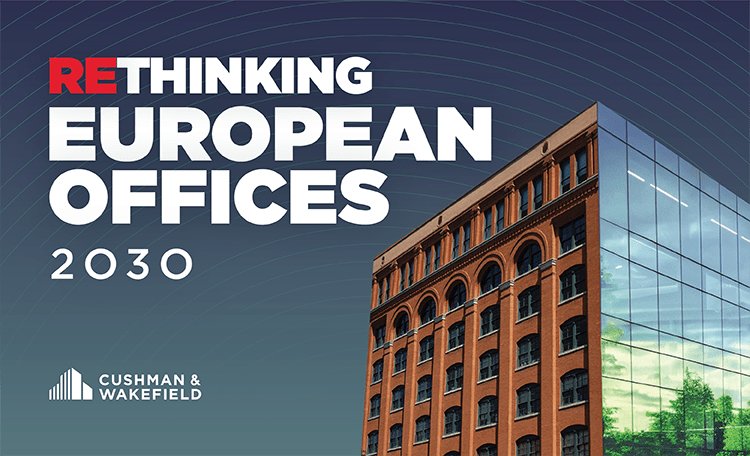Rising prices and more transactions
- Focus on densely populated regions and cities
- ESG remains relevant for investment decisions - with a downward trend
- Participants assume that transactions will increase both in the top 7 and in secondary locations
Residential property remains an extremely attractive capital investment. The systemic relevance, crisis resilience and particularly high demand for residential property, especially in structurally strong regions, indicate that the asset class will continue to be important in the future. Investors are becoming increasingly active and are not only focusing on core properties but, are also looking for properties with short to medium-term value appreciation potential. These are some of the findings from the latest residential property survey by Cushman & Wakefield, a global property consultancy, in which a total of 112 market players took part.
Around half of the participants were asset and investment managers, while developers accounted for 14 per cent, family offices/private individuals for 11 per cent, listed companies, insurance companies and fund managers for up to 5 per cent each. The existing portfolio (for project developers: residential units under construction) ranges from a few units to several tens of thousands of units. 30 per cent of those surveyed currently manage fewer than 500 residential units, while over 40 per cent have 2,500 units or more in their portfolio.
Jan-Bastian Knod, Head of Residential Investment & Healthcare Advisory Germany at Cushman & Wakefield: "The aim of the survey was to assess and categorize the current and future focus, strategy and sentiment of investors. Demographic change, construction and financing costs and increasing competition for space are influencing the residential property market more than almost any other property sector. Innovative and flexible residential concepts such as micro living or senior living are examples of possible responses to current requirements."
Investors focus on large cities and densely populated regions
Jan-Bastian Knod summarizes the answers to the question about the asset class in connection with city size as follows: "The more inhabitants a city has, the more investors are interested in a corresponding investment." Investors are most interested in existing properties in large metropolitan regions (71%), followed by new-build residential properties in the same city category (60%). Only 28% would invest in properties in the largest cities, and only 9% in properties in smaller cities (under 50,000 inhabitants).
Which of the following asset classes does your company invest in? (Multiple answers possible)

Accordingly, metropolitan regions also came out on top when it came to the specific question of the most attractive investment locations, with Berlin (67%) being the only city to attract more than two thirds of investors, followed by Hamburg (63%) and Munich (61%), Frankfurt am Main, Düsseldorf, Cologne, Stuttgart and Leipzig (between 59% and 32%). In addition, "regional cities" in Bavaria, Baden-Württemberg, Hesse and North Rhine-Westphalia were also named as the most attractive investment destinations with values between 38% and 20%.
Value enhancement as an investment objective - ESG importance high, but declining
Those surveyed not only attach importance to high-quality core properties, but also increasingly want to increase the value of their portfolio during the holding period. The number of investors with a core+ or value-add risk/return profile is therefore steadily increasing. "Manage-to-core is a term that has become more attractive to many investors. This involves buying properties of moderate quality and developing them into a core product with the help of investments. The focus is also on the manage-to-ESG strategy, which emphasizes the sustainable development of the portfolio," says Jan-Bastian Knod. 41 per cent of participants stated that the topic of ESG is extremely relevant to their investment decisions, while for a further 35 per cent it is "somewhat relevant". Despite this still high percentage attaching great importance to the topic, the response rate for one of these two categories has fallen by a total of 12 per cent compared to the 2023 survey.
Investor assessment of market development shows growing momentum
86 per cent of participants expect transactions in the top 7 to increase over the next 12 months. 72 per cent expect transactions in secondary locations to increase. 78 per cent expect a growing focus on cooperations and partnerships. According to the investors surveyed, alternative residential uses will also gain in importance. Almost 70 per cent agree that the focus on micro-living and student living as well as senior living will continue to increase.
Overall, investors expect the residential property market to stabilize. Around half of those surveyed expect purchase prices for existing and new-build properties in the top 7 cities to rise. Almost half of those surveyed also expect purchase prices in secondary locations to rise minimally.
According to the participants, both the top 7 and secondary locations will experience strong growth in rents. Rents in the top 7 are expected to rise by at least 2.5 per cent over the next 12 months, particularly for new builds (90 per cent).
For existing properties in the top 7, around 74 per cent of participants expect rents to rise by at least 2.5 per cent. For secondary locations, 60 per cent assume that rents for new builds and existing properties will increase by 2.5 per cent or more.
Jan-Bastian Knod concludes: "The survey results largely confirm our own observations: a clear stabilization can be seen on the residential property market. The majority of survey participants expect market momentum to accelerate in the coming months with rising purchase and rental prices."






